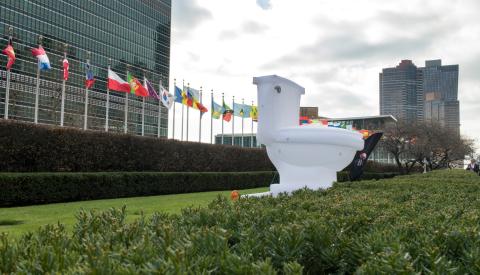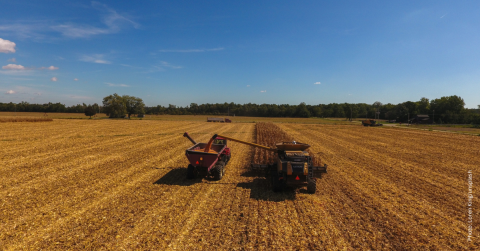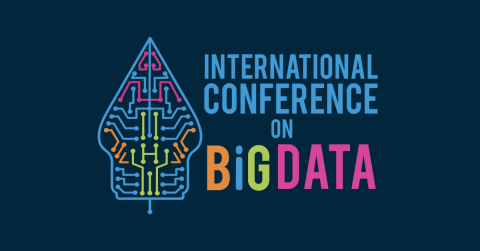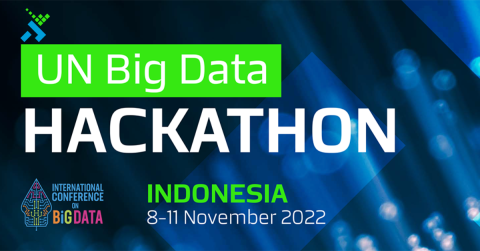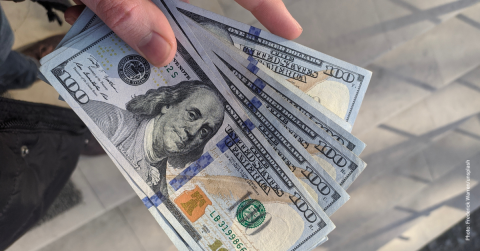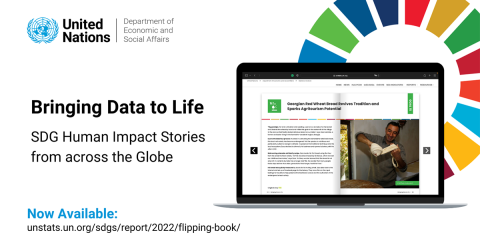Energy crisis poses threat to Europe’s industrial sector
Europe is facing a difficult and uncertain economic outlook. Governments, households, and firms are grappling with an energy and cost-of-living crisis that was exacerbated by the war in Ukraine. Amid high inflation and rapidly tightening monetary policy, many European countries are expected to suffer a recession over the winter.
World Toilet Day 2022: Making the invisible visible
Groundwater is invisible, but its impact is visible everywhere. This World Toilet Day is all about making the invisible visible and taking action to achieve Sustainable Development Goal 6 on water and sanitation for all. The 3.6 billion people worldwide who lack access to safely managed sanitation depend on these efforts. Learn more about the day and ways to get involved.
What is the aim of World Toilet Day?
Economic downturn poses further risks for food security
Hunger is on the rise globally. The number of people affected by acute food insecurity nearly doubled in recent years and it is likely to climb to over 200 million in 2022. Close to one million people live in starvation conditions – ten times more than six years ago. The impact differs by gender, with women facing more food insecurity than men in every region of the world.
Big data and data science play a key role in addressing global challenges
The world faces many global challenges related to the environment, climate change, health, food insecurity, economic recovery and human displacement. COVID-19 and the ongoing military conflict in Ukraine have caused disruptions in supply chains and have raised energy and food prices significantly, making it difficult for millions of people around the world to cover their basic needs of food, water and shelter. The resilience of our societies is further tested by typhoons, flood, drought and other severe weather patterns.
UN Big Data Hackathon calls for solutions to current global challenges
Close to 2,000 data scientists and statisticians from more than 70 counties will compete in the 2022 UN Big Data Hackathon from 8 to 11 November 2022 as part of the 7th International Conference on Big Data and Data Science for Official Statistics.
Growing old and staying resilient
The COVID-19 pandemic has directly or indirectly caused the loss of lives of over 12 million older persons. Yet this constituency chose to commemorate the International Day of Older Persons, celebrated globally on 1 October, by calling for public recognition of their strength, participation, productivity, resourcefulness and humanity in sustainable development.
What does a stronger U.S. dollar mean for developing countries?
The U.S. dollar has reached historic high levels not seen for two decades, as the United States Federal Reserve has been increasing its interest rates aggressively since March 2022 amid stubbornly high inflation. Higher interest rates and the relative stability of the United States economy have boosted the dollar’s appeal and triggered a ‘flight to safety’ in the international capital market.
Dignity for all in practice
Both the 2030 Agenda for Sustainable Development and the World Summit for Social Development are committed to seeking lasting solutions to eradicating poverty, creating full employment and decent work for all, and building more inclusive societies.
Water and sanitation for all: is the glass half empty or half full?
In 1977, the first Apple II computers were sold and the first Star Wars movie premiered. But did you know that 1977 was also the year of the first ever United Nations Water Conference, held in Mar del Plata, Argentina?
Almost fifty years later, where are we now on the issue of water and sanitation for all? Is the glass half empty or half full?
Behind the numbers: explore vast assets of SDG data
Alongside The Sustainable Development Goals Report 2022 are an array of assets to guide audiences to dive deeper into the SDG data, trends and real-life stories behind the numbers to help further understand SDG progress globally. Start exploring here:
 Welcome to the United Nations
Welcome to the United Nations

